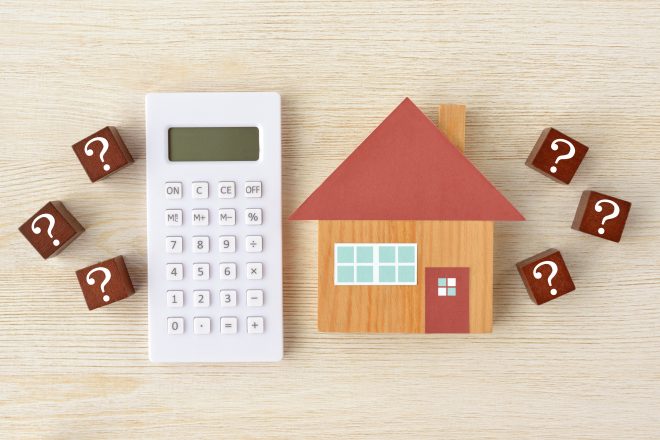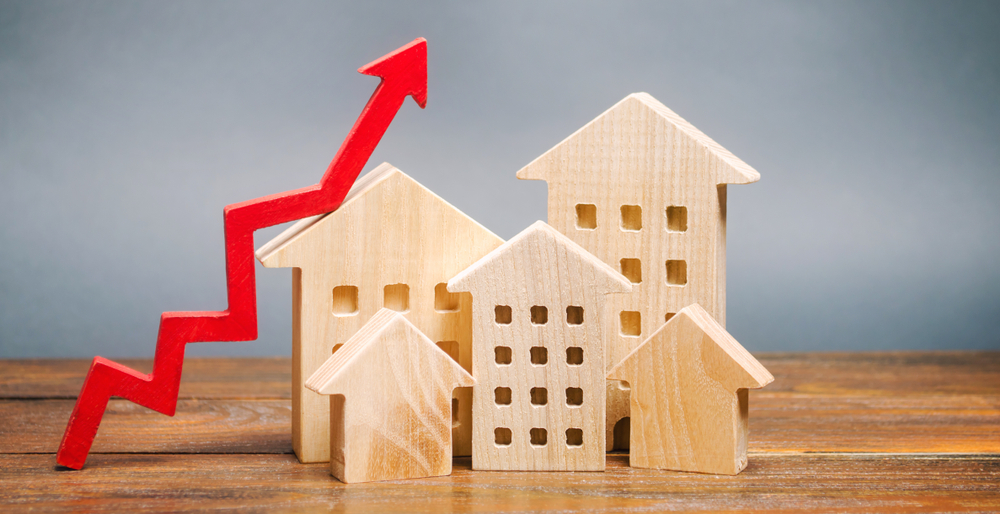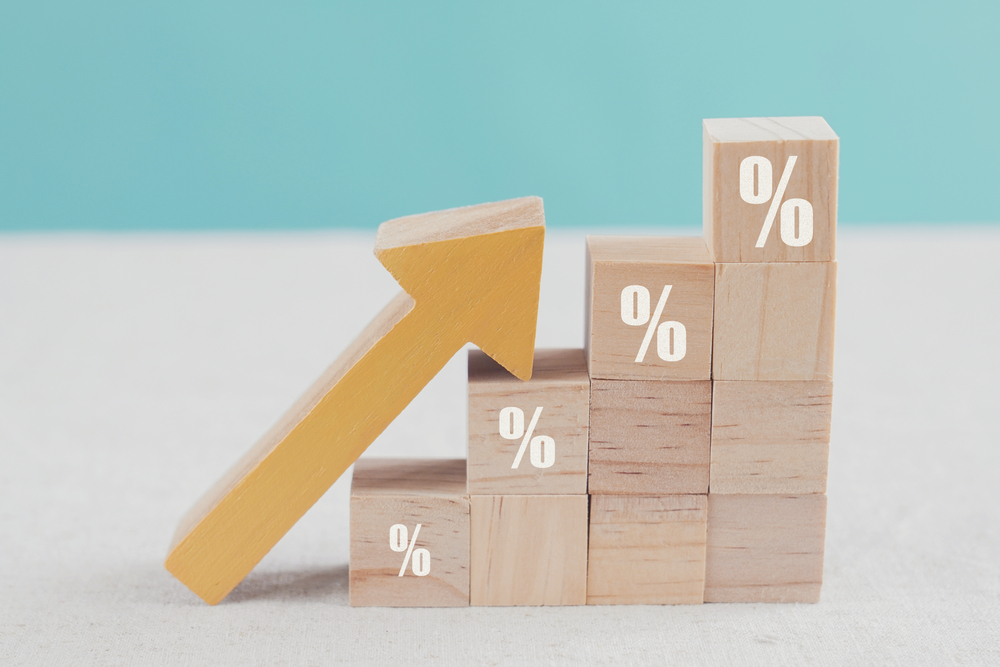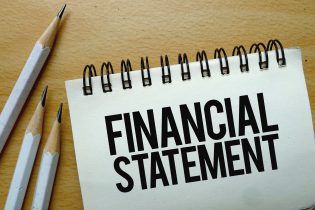How Inflation and Mortgage Rates are Impacting Would-be Home Buyers in NYC

If you watch the news (or your budget), you know that inflation and mortgage rates are hitting America hard right now; New York City–already one of the most expensive places to live in the United States–is no exception. Prices are up on everything from a cup of coffee to a used car. But what about new homes and apartments?
Table of Contents
Why Are Home Prices High?

Unfortunately, prospective home buyers are having to contend with not only inflation, but also mortgage rate hikes. If you are thinking of buying a home in NYC, what do rising inflation and mortgage rates mean for you? On this page, we will give you all of the info you need to make a smart decision on purchasing real estate in this market.
First, let’s talk about the two major contributors to NYC’s rising home prices: inflation, and mortgage rate hikes.
Inflation

Inflation is the rate that prices rise. This means prices on everything–from day to day essentials to services to big purchases. Inflation is simply inherent to our economic system. Every year, prices can and will go up. This lowers consumer’s purchasing power.
What is High Inflation?
Inflation by itself is not a problem. It is usually kept in check by the Federal Reserve, who limits the money supply so that it does not massively outpace the growth of the economy. Inflation becomes a problem when it gets too high.
High inflation means that regular people may struggle to make purchases that were once within their budget. While higher prices can benefit homeowners looking to sell, buyers are left in a lurch.
Why is Inflation High Right Now?
Right now in 2022, inflation is definitely high–so high that the government just passed a major bill aimed at curbing it. This can be attributed to a couple of factors: namely, the global Covid-19 pandemic and the war in Ukraine.
Covid left people out of work and paused the supply chains we depend on for our goods. The government combatted these bad effects on the economy by issuing stimulus checks, which added to the money supply. Buyers with this additional cash push the demand for goods, and with the supply chain disrupted, the supply of goods diminished. All of this combines to higher prices, AKA high inflation. The war in Ukraine is only furthering the supply chain issues. This is particularly reflected in oil and gas prices.
Does Inflation Impact Home Prices?
It sure does. According to a report from NPR, inflation is not only affecting home prices–it’s actually hitting the housing sector the hardest.
During the pandemic, interest rates were low, and buyers were eager to upgrade their spaces to adjust to the work-from-home world. Many people were looking to find a new home. Combine this high demand with low supply, and home prices are now sitting around 30 to 40 percent higher than they were two years ago.
This is not all attributable to inflation, however. The high home prices are also impacted by the mortgage rate hikes.
Mortgage Rate Hikes

What is a mortgage rate? It is the interest rate set on the loan you take out to pay for your new home, AKA, your mortgage. There are two types of mortgage rates–fixed rate and variable rate.
How the Mortgage Rate Impacts You
Very few New Yorkers are able to purchase a home outright. Most of us have to take out a mortgage and pay over time. The amount of interest charged on this loan can add a significant cost to the purchase price of your home.
How Much is the Mortgage Rate Right Now?
The interest rate on your mortgage will depend on several factors, including your credit score and whether you have a fixed rate or variable rate mortgage. However, over all, mortgage rates are up right now across America.
Last year, the mortgage rate for a 30 year mortgage was 3.06 percent, and now, it has risen to 5.76 percent. Additionally, adjustable rate mortgages (ARM), and 15 year fixed rate mortgages are also up.
Why are Mortgage Rates Up?
So, why are mortgage rates up this year? The simple answer is: the Federal Reserve. But the full answer is more complicated. Although the Fed does not actually set mortgage rates, lenders adjust their mortgage rates based on the actions of the Federal Reserve.
The Federal Reserve has been hiking up the federal funds rates. This is basically the target interest rate for banks to loan and borrow between themselves. What does this have to do with interest rates on home loans? Well, banks will use the federal funds rate as a basis for their prime rate–the interest rate banks use to loan to their borrowers with the best credit. Prime rates, in turn, impact the interest rates on mortgages.
If this all sounds a bit confusing, we get it. Just think of mortgage rate hikes as indicative of what the Federal Reserve thinks about the state of the economy. If the Fed feels that inflation is out of control, then they will issue guidelines to raise interest rates. Banks will take these guidelines into consideration when deciding on mortgage rates.
Should You Buy Now?

So what does all of this mean for you? Should you buy a new home now? Should you wait until there are better market conditions? Ultimately, your decision will depend on your particular circumstances and priorities. Here are the factors you should consider before buying a home right now.
Why You Should Buy a New Home Now
Sometimes, you just need to change your living situation. Maybe you work from home and cannot stand using your kitchen table as a home office anymore. Maybe you are headed back to the office for the first time in a couple of years–only to face the fact that an hour and a half commute just will not work for you anymore. There are a lot of reasons why you may decide to prioritize buying a new home, high inflation or not.
If you absolutely need to move right now, then you can find something within your budget with the help of a good real estate agent. Since a dollar will not stretch the way it used to, you may need to compromise on some things, like accepting lesser amenities, a less than perfect location, or sacrificing some square footage. But your agent can not only work to find you the best property to fit your needs and budget, but also can potentially negotiate a better closing deal for you. So talk to your agent about saving money where you can, and stay positive as you search for your new home.
Why You Should Wait to Buy a New Home
If you can hold out, then consider waiting to buy a new home. The housing market is notoriously hard to predict, so there is no guarantee that home prices will fall to the rates you want, when you want. However, there may be some light at the end of the tunnel.
Experts anticipate that inflation could cool by mid 2023. As the economy rebounds from the pandemic and supply starts to meet demand, the rate of inflation should go down. Of course, the pandemic wasn’t exactly predictable in the first place, so there could always be new and unforeseen obstacles to economic recovery. But based on our best guesses right now, the rate of home prices rises should start to settle down.
What Inflation and Mortgage Rates Mean for You

Even though inflation and mortgage rates are high right now, there are still plenty of great new developments that can fit your needs. Your real estate agent can help you find the right property, and can also negotiate a better deal for you. Here are some ways you can increase your chances of finding a great home within your price range.
Look Into Sponsor Units
Sponsor units are apartments that have not been sold on the market before. These units can sometimes be less expensive than resale units because they can require lower down payments. Although these units are pretty rare in NYC real estate, many new developments are sponsor units since they are new constructions.
Negotiate Your Closing Costs
You may be able to negotiate to lower your closing costs. For example, if you are expected to pay the real estate transfer tax for your new home, you may be able to convince the seller to take on this responsibility instead. If your building is still under construction, you may also be able to negotiate for better amenities or appliances, raising the quality of your apartment without raising the price.
Stay Open Minded
There are a ton of great neighborhoods in NYC. If you stay open minded about the location of your future home, you widen your chances of finding a great deal. Keep up with the latest in new developments across all of NYC by reading New Dev Rev’s neighborhoods page.
Find your dream home— even in this economy!
- Categories:




